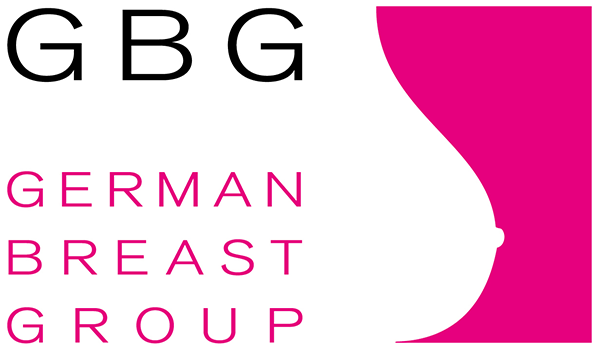GBG Participation
Once again this year, GBG will be well represented at ESMO Breast Cancer with three posters and two presentations on current studies and research projects.
Poster presentations
310P - Quality of life with first-line ET + palbociclib vs standard mono-chemotherapy in high risk HER2-/HR+ mBC and indication for chemotherapy in the PADMA study presented by Prof. Dr. Vesna Bjelic-Radisic
> In our evaluation, the combination of palbociclib and endocrine therapy (Palb + ET) showed a statistically significant advantage in quality of life (QoL) – particularly in the areas of physical and emotional well-being. Clinically relevant improvements were also observed in the overall scores of the FACT-B, FACT-G, and FACT-B TOI questionnaires compared to standard monochemotherapy. In addition to the already known significant advantage in progression-free survival and a significantly prolonged time to treatment failure, the current results on quality of life underscore the high value of endocrine therapy + CDK4/6 inhibitors as the first treatment option for HR+/HER2- metastatic breast cancer.
323P - Comparison of treatment-related contacts and associated quality of life in patients with HR+/HER2- metastatic breast cancer treated in the PADMA Study presented by Dr. Stefan Lukac
> Patients treated with palbociclib and endocrine therapy (Palb + ET) had longer progression-free survival (PFS) and fewer doctor visits, meaning less time spent on treatment. There was also a trend toward lower financial burden, although the difference in travel emissions between the treatment groups in this sample was not detectable. Fewer phone calls and visits to the clinic were also associated with a better quality of life.👉 These new, patient-centered results strengthen the recommendation to use Palb + ET as the preferred first-line therapy for patients with HR+/HER2- advanced breast cancer at high risk.
352P - Long-term survival of HER2-positive breast cancer patients with brain metastases: Final analysis of the Brain Metastases in Breast Cancer Registry (BMBC) presented by Dr. Patricia Von Kroge
> Our analysis of the large BMBC registry has identified important factors associated with long-term survival in patients with HER2-positive breast cancer and brain metastases (CNS metastases).
The following factors were particularly significant for longer survival:
🔹 the use of HER2-targeted therapies
🔹 the age of the patients
🔹 the hormone receptor status (HR status)
🔹 the general condition (ECOG performance status)
🔹 and the number of brain metastases
Oral presentations
LBA1 - Adjuvant pertuzumab or placebo + trastuzumab + chemotherapy (P or Pla + T + CT) in patients (pts) with early HER2-positive operable breast cancer in APHINITY: Final analysis at 11.3 years' median follow-up presented by Prof. Dr. Sibylle Loibl
> In this predefined analysis of overall survival (OS) with a long follow-up period (median 11.3 years), a statistically significant survival benefit was demonstrated when pertuzumab was added to standard therapy with trastuzumab and chemotherapy. The benefit in disease-free survival (IDFS) was maintained and remained clinically meaningful in patients with lymph node involvement (node-positive). However, no benefit was seen in patients without lymph node involvement (node-negative). Important: No new cardiac safety issues arose.
👉 These final OS data with long-term follow-up confirm the sustained benefit of pertuzumab in early breast cancer treatment.
- Special Symposium: Antibody-drug conjugates (ADCs) resistance: What do we know? - Payload and antibody in predicting resistance to ADCs presented by Prof. Dr. Sibylle Loibl

